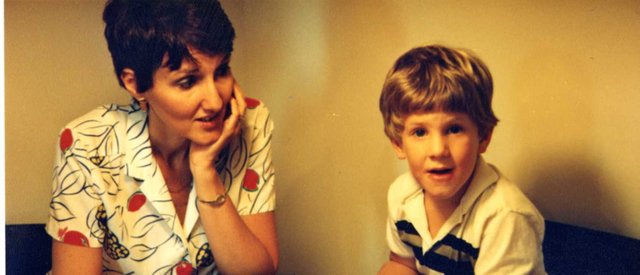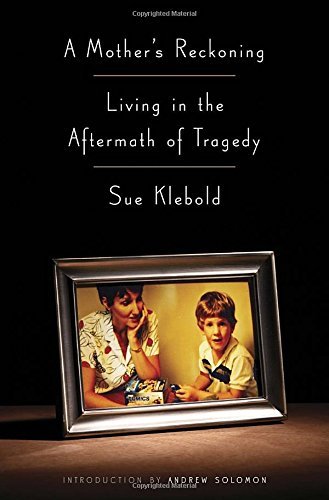A Mother’s Reckoning - Book Review

I feel that before I discuss this book I need to explain why I chose to read it. I have held a deep fascination for true crime and murder mysteries since I was a child. My father was an avid Stephen King fan and I do believe the first chapter book I read was The Green Mile (back when it was a mini volume set.) Being exposed to horror at a young age definitely numbed me to the brutality of it. When my 6th grade teacher introduced me to the Nancy Drew series I was quickly turned from horror to mystery. Although the two intermingle perfectly in true crime.
At the heart of it my love is for physchology. What make people do horrific things? Why do they cross that moral line? More importantly can we spot any telling signs before the damage is done?
School shootings is a subject that I have quite extensively researched, as I am an education major. In the dark corner of my mind there are those what if scenarios, probably due to the time of material I surround myself with. Anyway I was talking this over with a college classmate of mine, this fear of not being able to spot the one kid who needs help. She shared with me a similar, but deeper fear. She relayed that she was afraid to have children one day, because what if she becomes the mother of that one child. That thought really stuck with me. I have known about Sue Klebold’s memoir since it was first published, but after that conversation I knew I had to read it.

I think most of the world is quite familiar with the Columbine school shooting that took place on April 20, 1999. Sue’s son Dylan Klebold and his classmate Eric Harris attempted to blow up the school with propane bombs and then gunned down classmates. I do believe it was one of those rare tragic moments where America stood still. I was nine years old at the time and still can recall vague memories.
In A Mother’s Reckoning, Sue attempts to shatter the illusion that she was a neglectful mother for not knowing what Dylan was planning. Her aim is not to help her own self image, but to help us realize that this could happen to anyone’s child. There were insignificant warning signs that she shares throughout the book, that could have only been seen looking back. I don’t have children myself, but Dylan didn’t seem to have that rebel without a cause attitude to him. By all means through Sue’s eyes he was a typical teenage boy.
“In the aftermath of Columbine, the world’s judgement was understandably swift: Dylan was a monster. But that conclusion was also misleading, because it tied up too neatly a far more confounding reality. Like all mythologies, this belief that Dylan was a monster served a deeper purpose: people needed to believe they would recognize evil in their midst.”
Sue brought up in the book that many people later came to her and shared their deep secrets. Things that they had hidden from their own friends, families, and even spouses. Most of us could probably admit that our parents didn’t know who we were when we were growing up. Did they know our fears, what our desires were, who was giving us hell in homeroom? Now if you want to argue that it’s the parents job to hunt these facts out like detectives by searching rooms and spying that’s valid. Where would you find this information though? It’s worth noting that when they FBI searched Eric’s room the first time they did not locate any weapons. They weren’t found until the Basement Tapes were viewed. A teenager had outsmarted FBI agents. Those “journals” you can read online were compiled by detectives by pieces of scrap paper found in their rooms, books, lockers, and book bags. It was not a notebook hidden under a mattress.
So what does this mean? How do we find that one child that needs help?
I do believe Sue’s main purpose in writing this book was to give attention to the dire need for a better mental health care. Why do we wait until the issues are there to hope we reconigize and treat them. With the nasty stigma already place on mental health disorders most who need help are too afraid, or embarrassed to seek it out. In the small town that I grew up in, a majority just self-medicated with alcohol and substance abuse. What Sue and many other’s are proposing is to make mental health become part of the yearly routine check up. Something I whole hearty agree with. For a quick over view of Sue’s thoughts on the matter she did do a TedTalk fairly recently.
I do highly recommend reading Sue’s book. She gets extremely personally with all the memories she shared with Dylan growing up. How the tragedy affected her, not only on that day but for the rest of her life. How do you properly grieve for a son that commits such a brutal act? I have so much love and respect for Sue for sharing her story with the world. There is a much bigger story here than what occurred at Columbine High on that fateful day.
Auror Willow
Source:
http://amothersreckoning.com